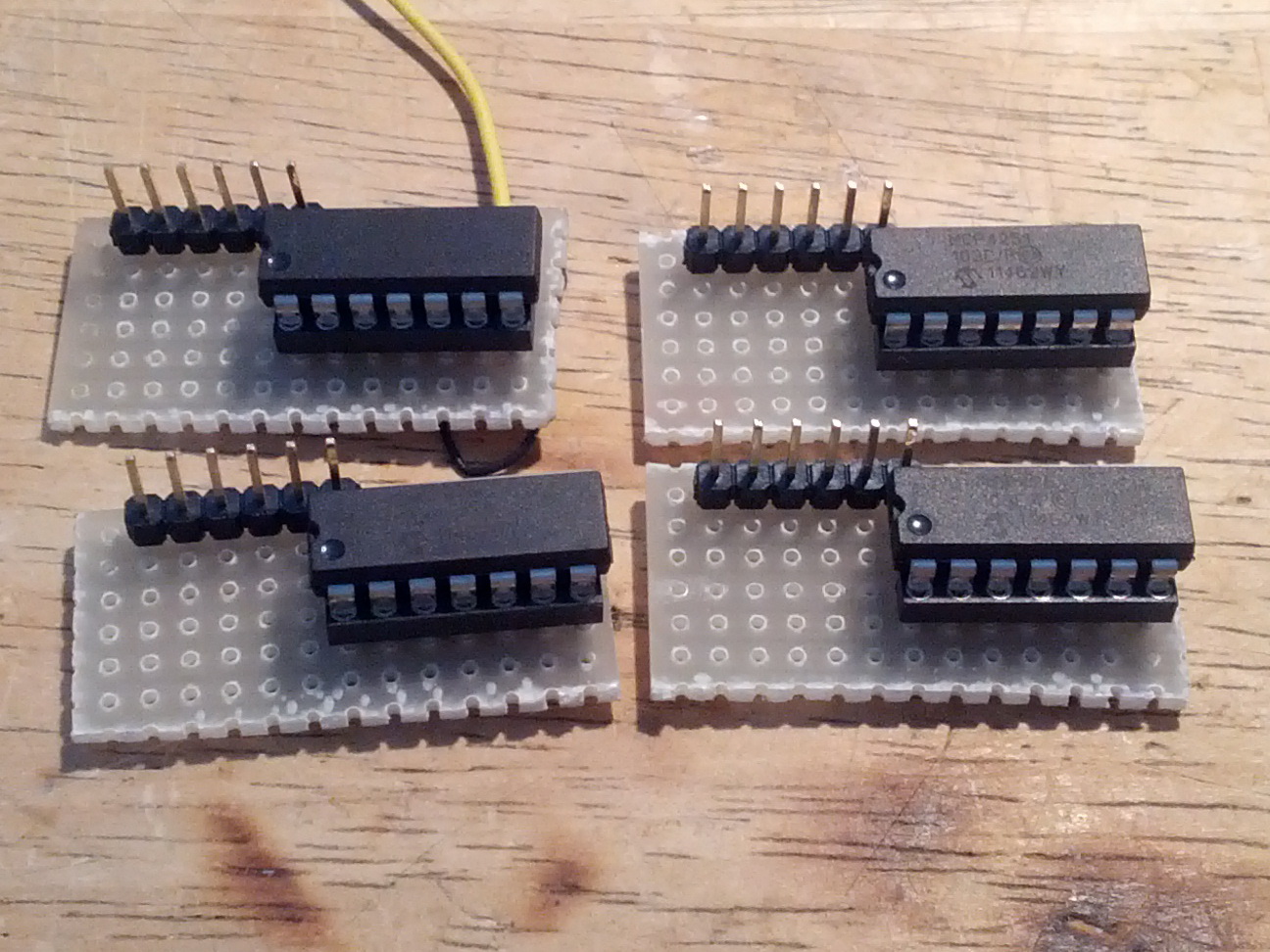(firmware still under development)
The aim is to replace the rotary gain controls with MIDI controlled digital potentiometers, allowing remote operation and gain recall (i.e. from a digital mixing desk).
This circuit can indeed be used in any other application which needs digital control of analog circuits.
I’m using four MCP4251 digital potentiometers with SPI interface, one ATmega8 and a 6N136 optocoupler.
Each MCP4251 (-103E version) cointains two 8-bit 10KOhm linear potentiometers but MIDI can carry only 7-bit wide values, so there will be a resolution loss, this is a minor issue since the ADA8000’s knobs do not turn smoothly but have 30 small notches and the potentiometer has a maximum resistance of 5KOhm.
The potentiometers inside the ADA8000 are used as a rheostat, a two-terminal variable resistor and not as a normal three terminal variable voltage divider, so it’s enough to limit the digital range to its half directly from firmware side
Circuit diagram (beta stage)

Dip switches are used to set up midi channel, first CC#, lin or log behaviour, volatile or non volatile operation (gain values may be stored into EEPROM).
Current features:
- Linear CC to resistance mapping
- Fixed midi channel and CC#
- Automatic storage of gain values to EEPROM
- Automatic power-on recall
Upcoming features:
- Channel and CC# customization
- Various CC mapping curves (log)
- Add phantom power control (global or individual)
- Extend compatibility to the whole MCP4xxx family
MCP4251 mounted onto mini breakout boards, will have to be placed very closely to the preamp section:

Some tests with a midi cc LFO, using one pot as a voltage divider with 0-5K limited range:

[…] converters instead of digital potentiometers to control the gains, but still. And then there is a blog article by an Italian guy, who has basically done the same as I’m going to do. I’ve ordered […]
Ciao, sono interessto al tuo progetto per il controllo remoto via midi e anche al convertitore ADAT – cat5, posso contattarti in qualche modo ?
grazie